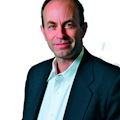SPIE Defense + Commercial Sensing transitions from in-person to online conference
SPIE has announced that its Defense + Commercial Sensing (DCS) conference, scheduled for 26-30 April 2020 in Anaheim, California, will be transitioning from an in-person to an online conference.
Following the most recent guidance of the CDC to cancel gatherings of more than 50 people for the next 8 weeks due to the spread of the coronavirus (COVID-19), SPIE will cancel all of its in-person conferences currently scheduled through 20 May 2020.
SPIE will refund or provide a credit toward future events for all money spent on registration, exhibit space, or sponsorship. Details regarding specific mechanisms for authors, attendees, and exhibitors will follow via email in the next days and be published on the event website.
"We regret the cancellation of our gathering in Anaheim," said SPIE in a statement. "As a Society, we recognize the importance of disseminating and sharing technical contributions, developing collaborations and sharing results. We will soon share details for uploading recorded presentations and posting with an opportunity for online discussion with colleagues and presenters.
"The SPIE family extends best wishes to you, your colleagues, and your families as we navigate these uncharted waters together. After this health crisis passes, we look forward to gathering our community together for productive and enjoyable events where you and other scientists, engineers, students, researchers, and businesspeople will help create the future."
Source: https://spie.org/cv-precautions-dcs
For the most up-to-date info on SPIE's Defense + Commercial Sensing, see https://spie.org/conferences-and-exhibitions/defense--commercial-sensing
Got optics- and photonics-related news to share with us? Contact John Wallace, Senior Editor, Laser Focus World
Get more like this delivered right to your inbox
About the Author
John Wallace
Senior Technical Editor (1998-2022)
John Wallace was with Laser Focus World for nearly 25 years, retiring in late June 2022. He obtained a bachelor's degree in mechanical engineering and physics at Rutgers University and a master's in optical engineering at the University of Rochester. Before becoming an editor, John worked as an engineer at RCA, Exxon, Eastman Kodak, and GCA Corporation.

